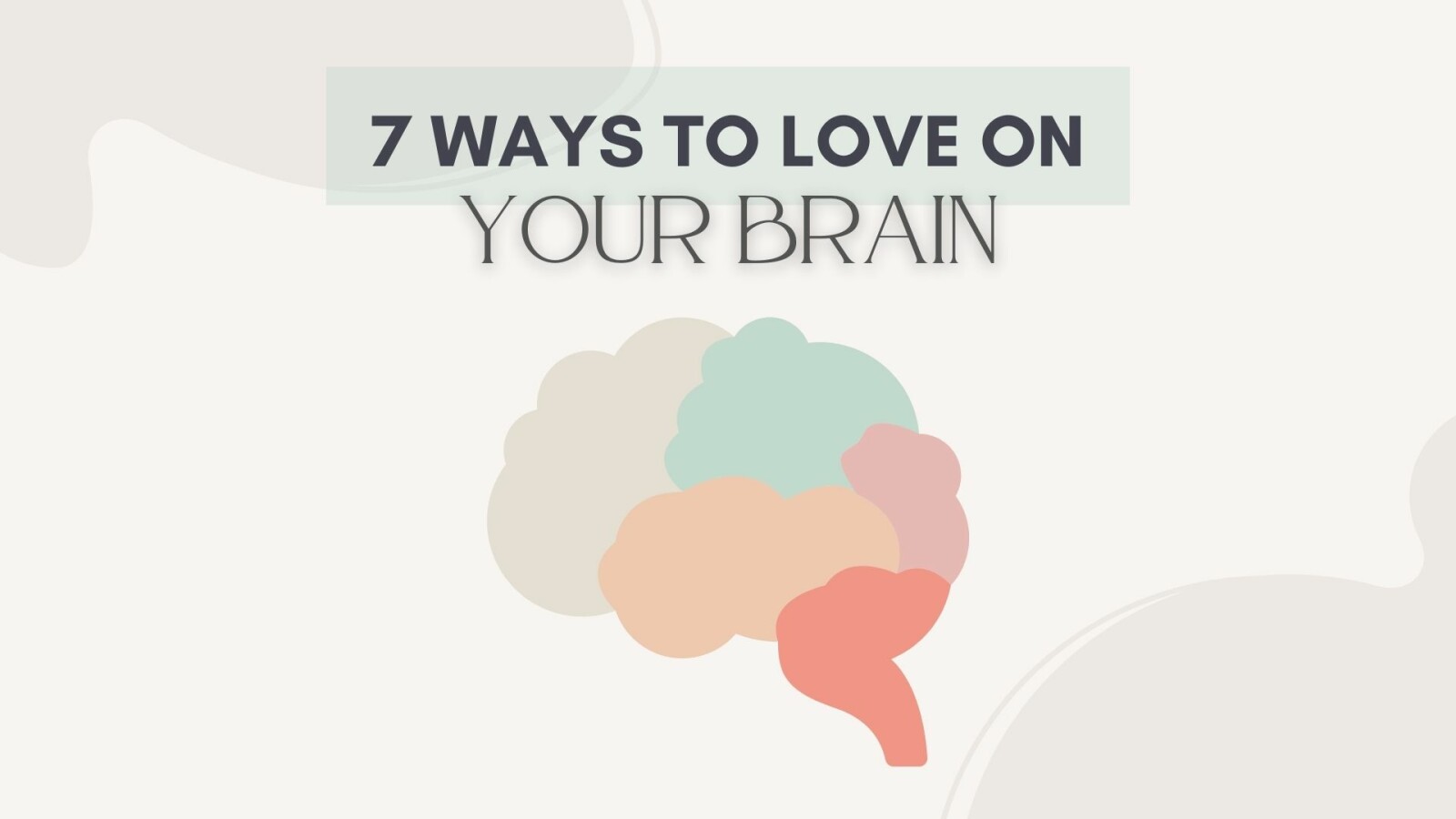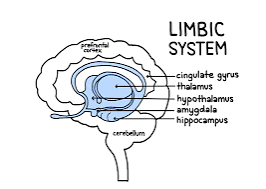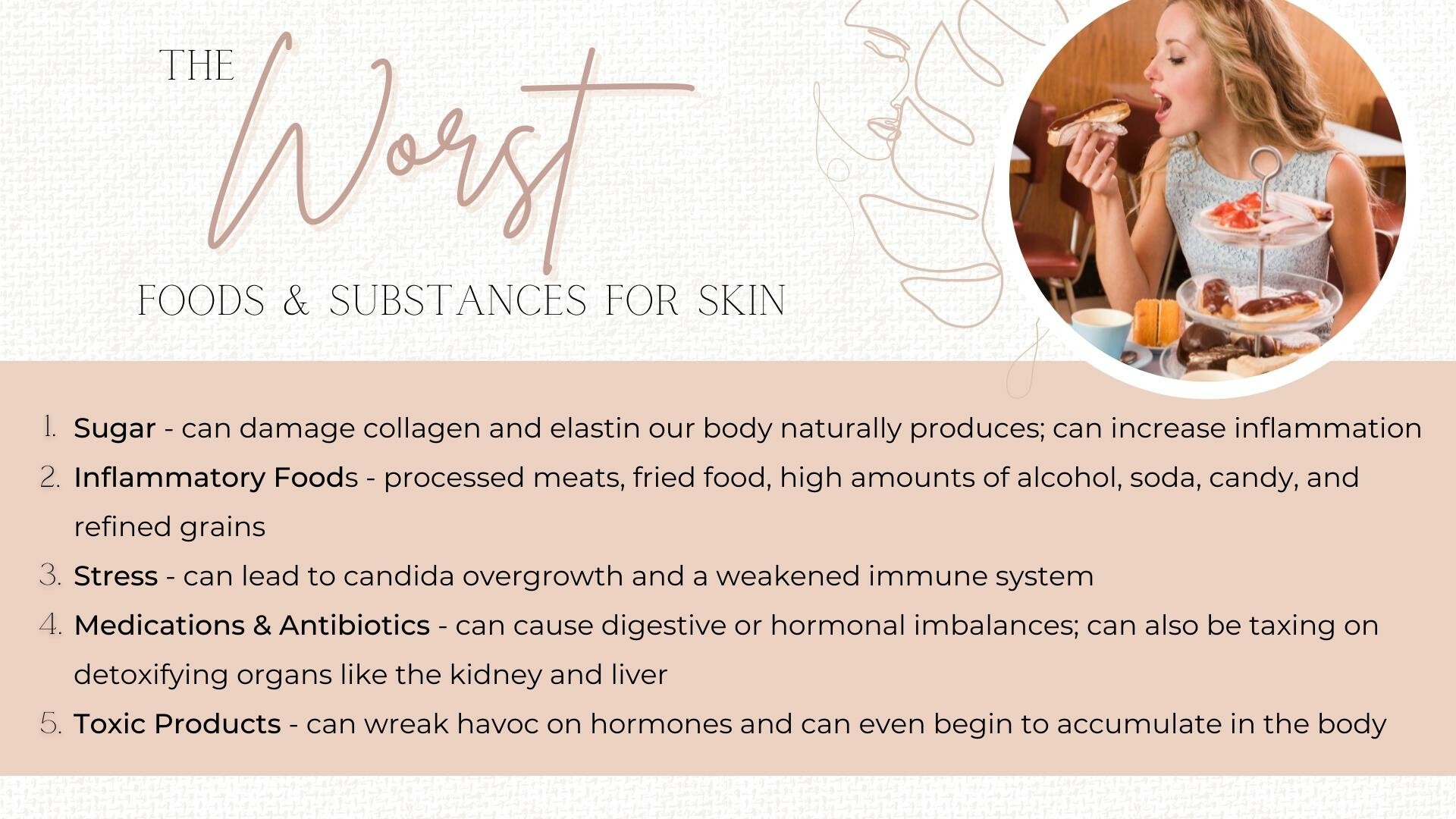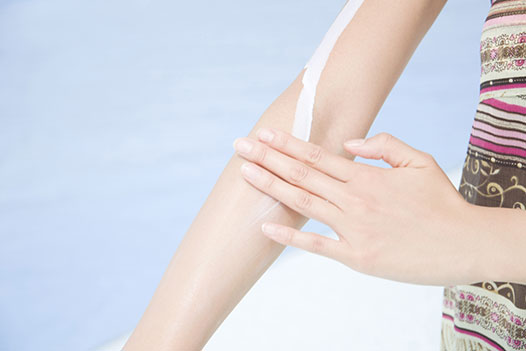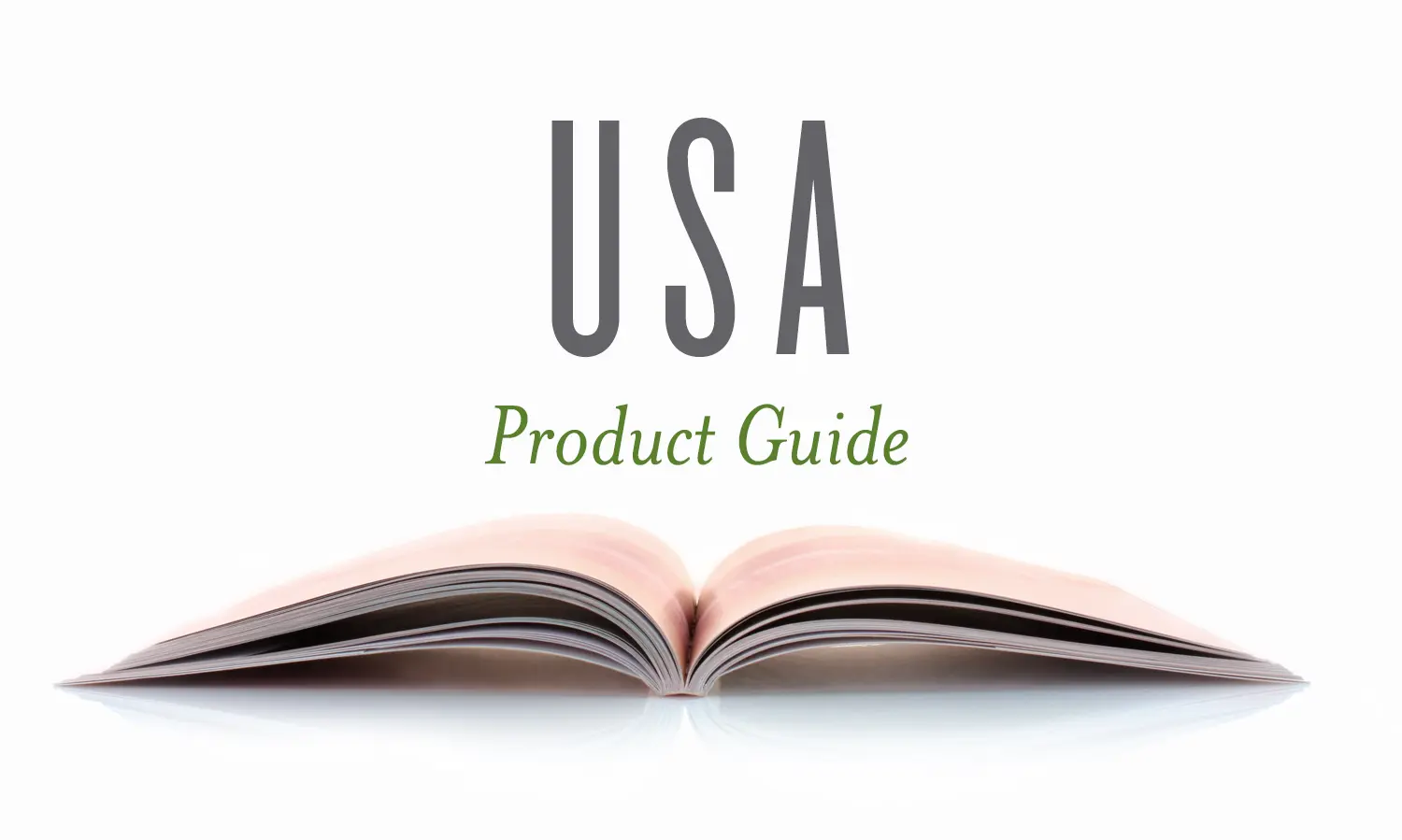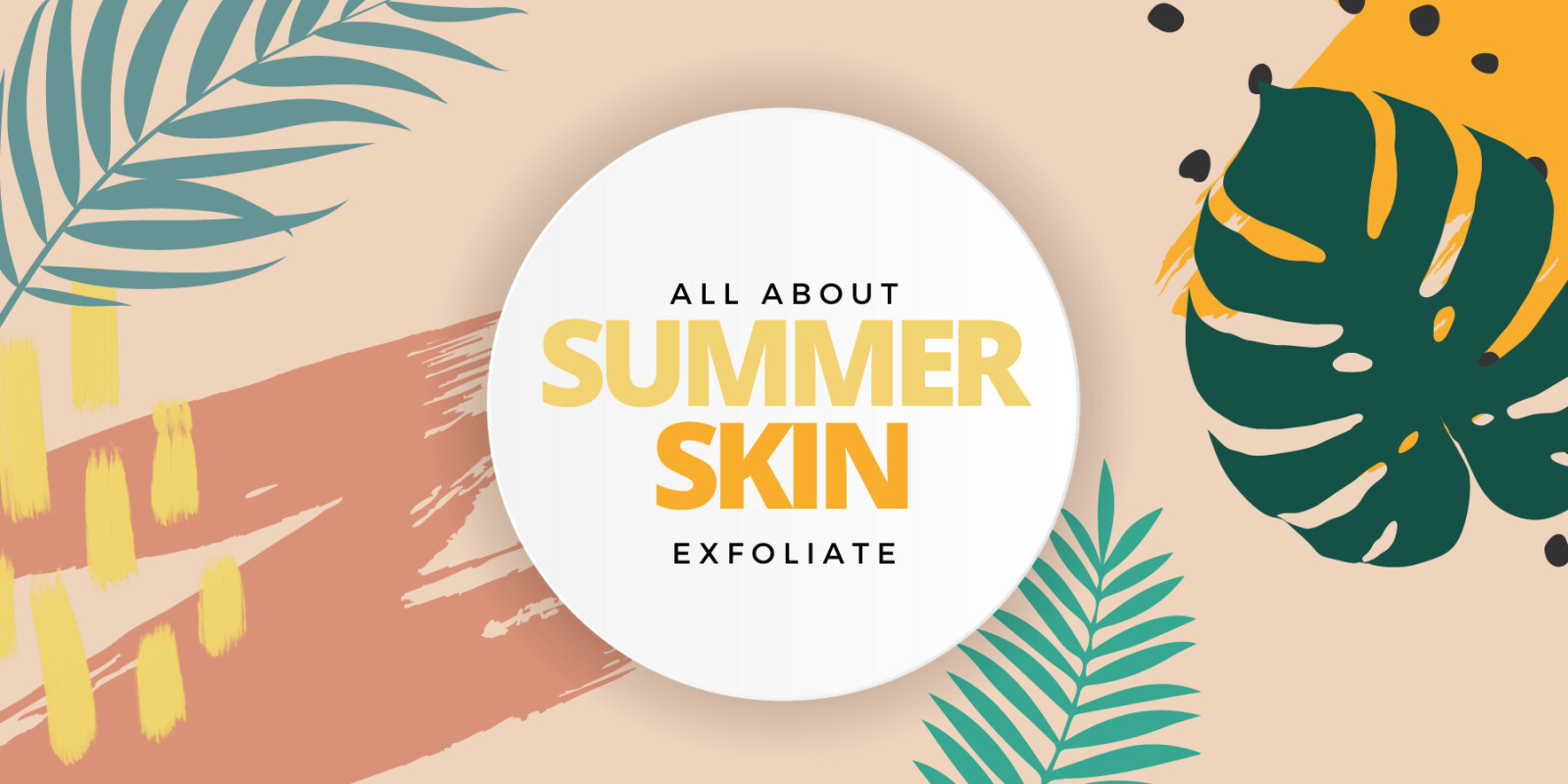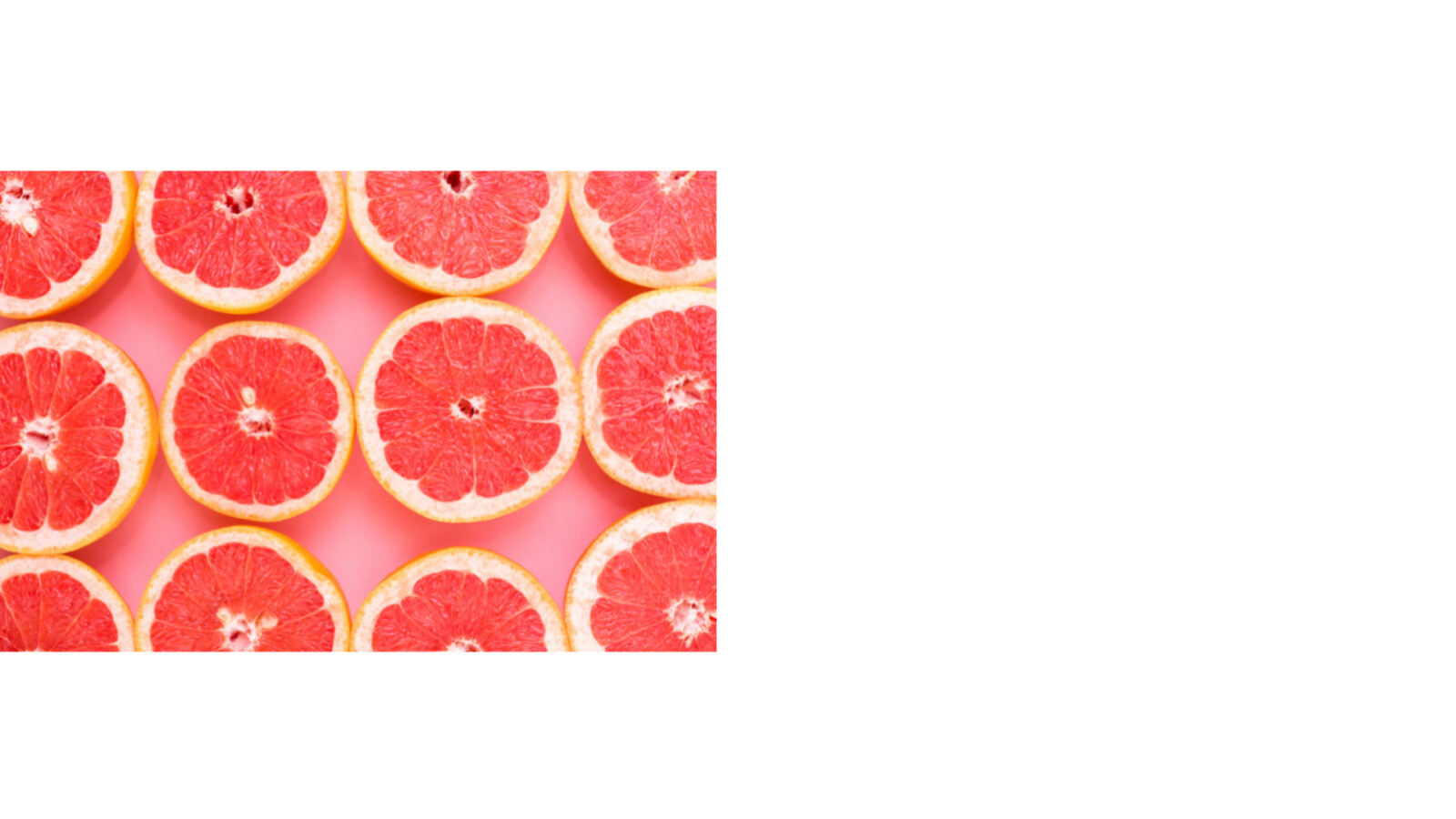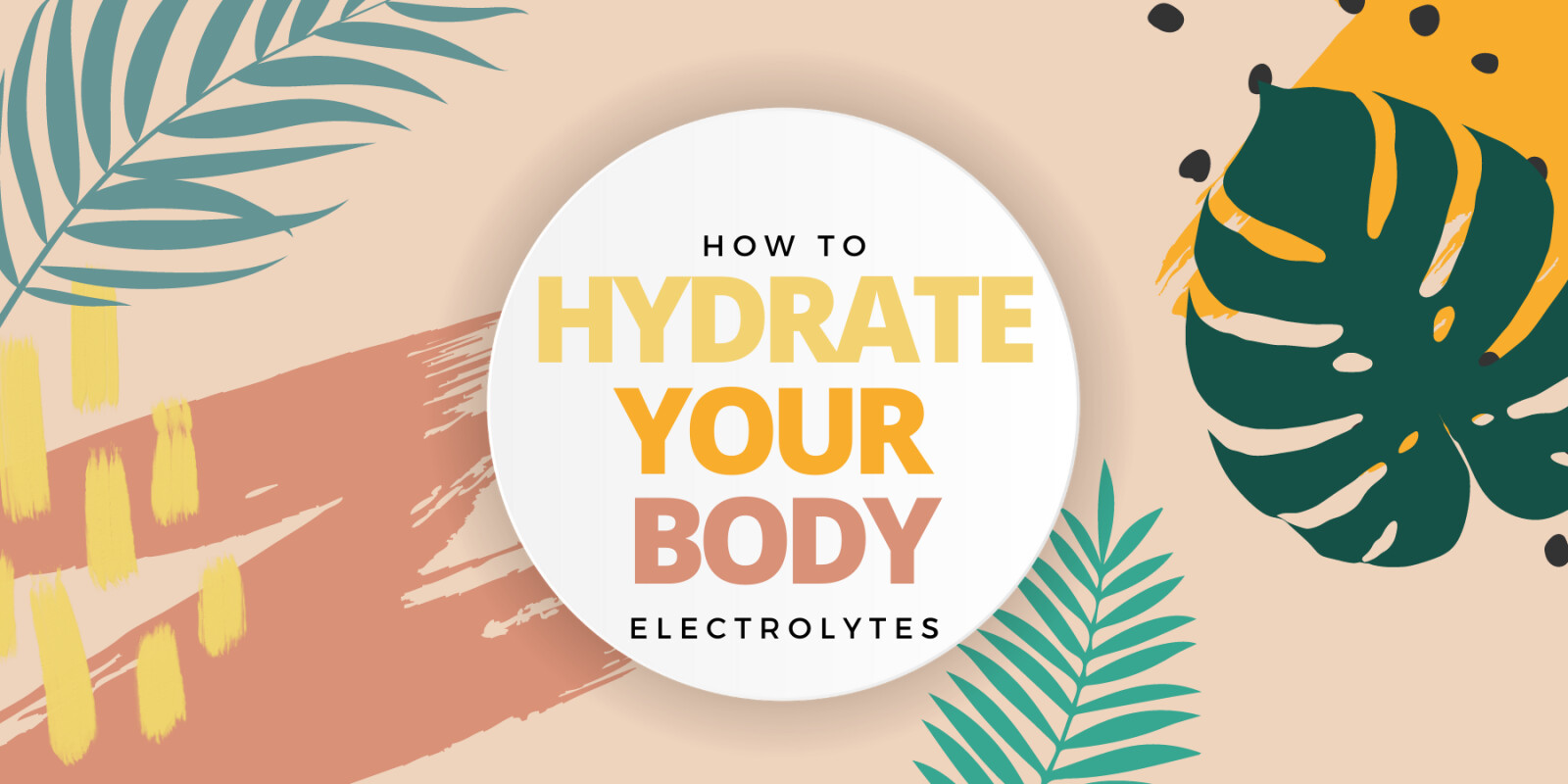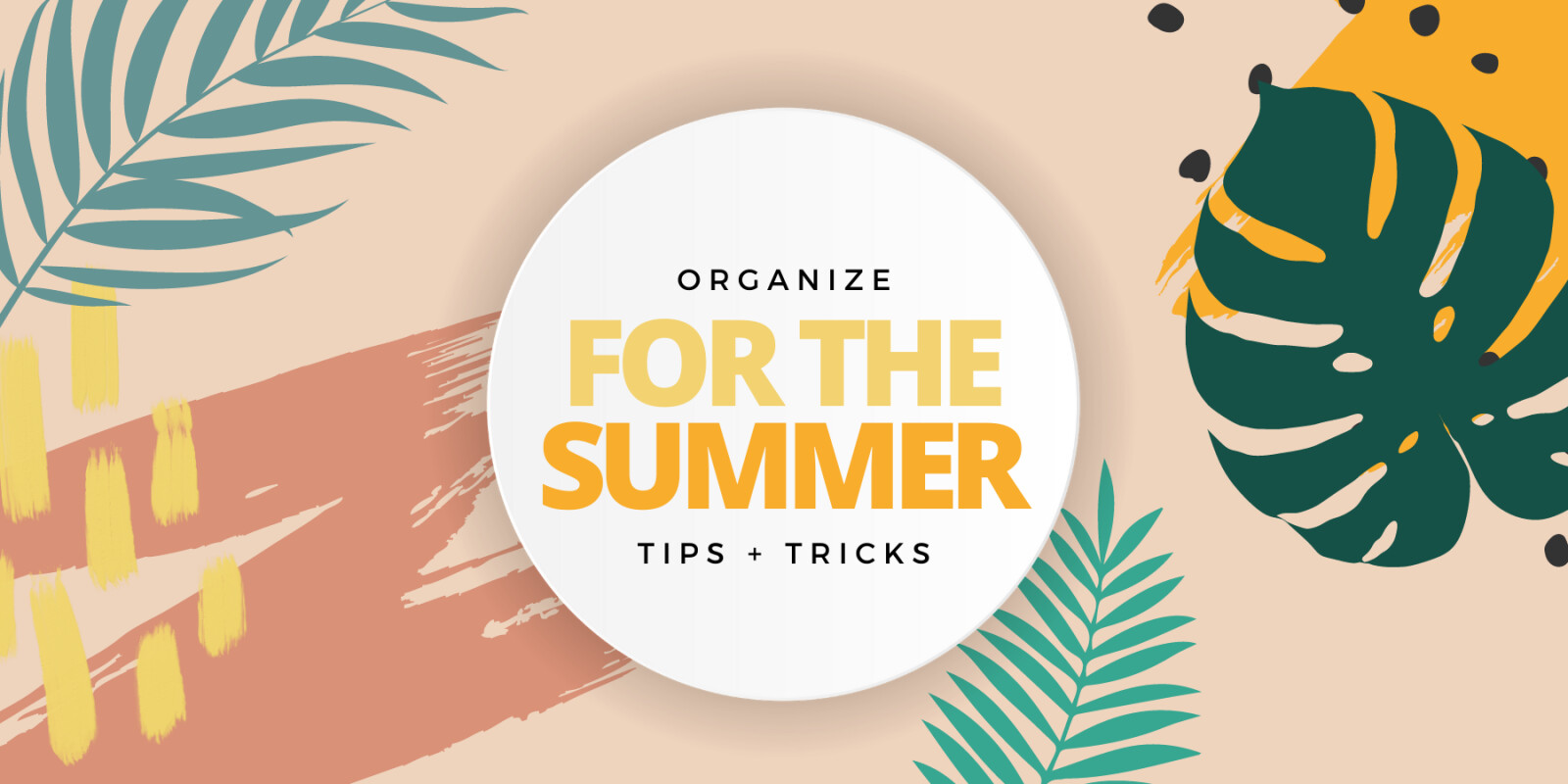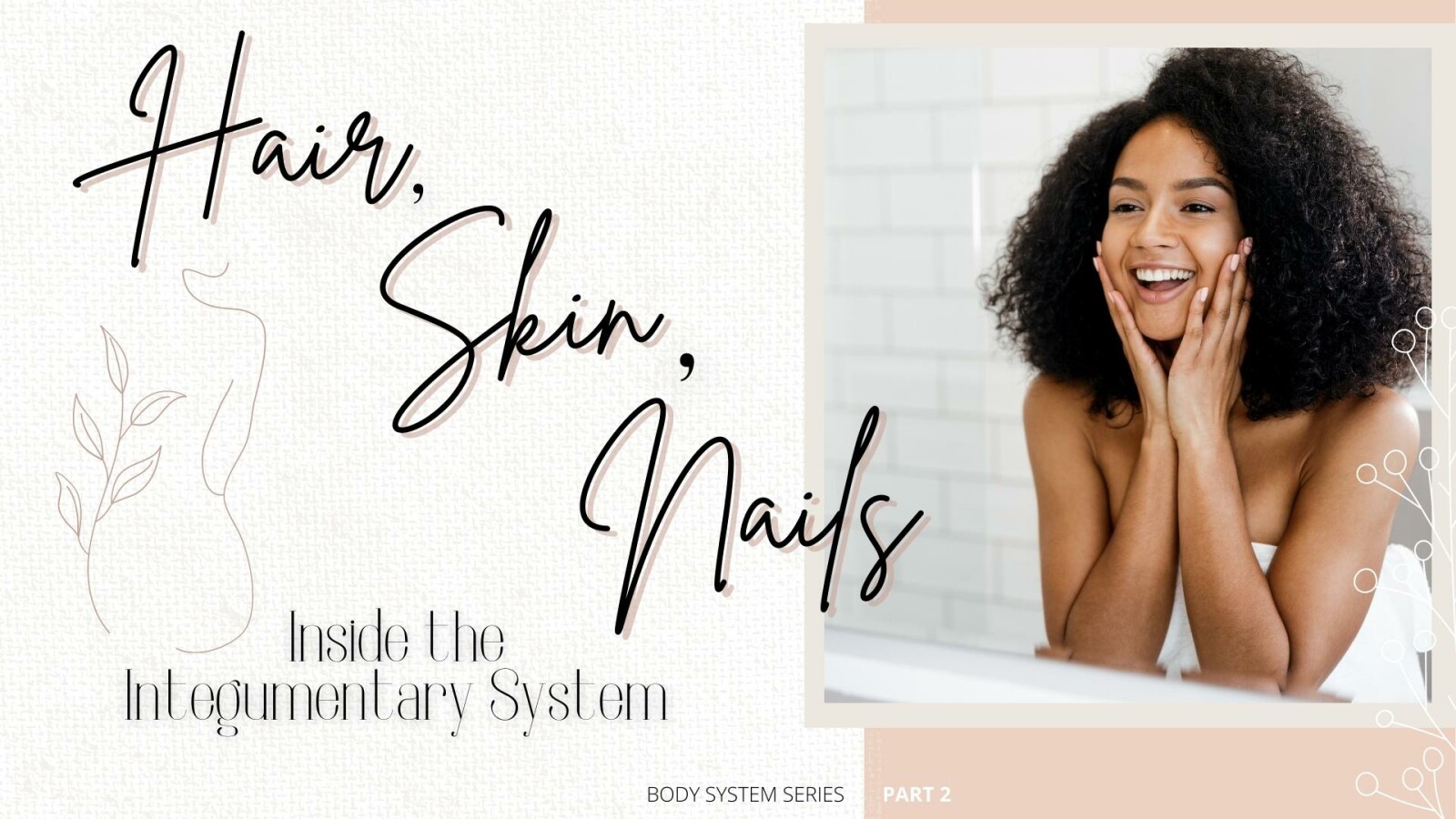
Acne, psoriasis, eczema, hair loss, dermatitis, brittle nails - all these can be signs of an imbalanced integumentary system. We all want healthy hair, skin, and nails - don’t we? These are all part of the integumentary system and need to be continually supported. But how
Basics of the integumentary system-your hair, skin, and nails - and how to support them!
So often we look at our hair, skin, or nails and think it only needs support from the surface, but that is definitely not the case! Now don’t get me wrong, taking care of those things topically matters. But what I want to challenge you with today is to focus on what’s happening on the inside and how it affects what you see happening on the outside.
Our body is a complex web of interworking systems. When your liver is abused, you might start to notice it in the color of your skin. When your gut isn’t working properly, you might start to notice things like psoriasis or eczema. When your hormones are imbalanced, you might start to see an increase in acne or hair loss. See how it all connects?
Well, don’t let that overwhelm you. Today we will discuss the basics of the integumentary system so you can see the whole picture. Then we will talk about some of the WORST things you can do and some of the BEST things you can do for your hair, skin, and nails. We want you to leave feeling more empowered than ever!
#2 Learn the Basics: What is the integumentary system?
So what exactly is the integumentary system? Well, to put it simply - it’s your hair, skin, and nails. To put it more scientifically, it’s the epidermis, dermis, hypodermis, associated glands, hair, and nails.
The integumentary system is the largest organ of the body! It forms a physical barrier between the outside environment and the inside environment of our bodies. Its main job is to protect all the vulnerable things within as well as maintain them. It’s your body’s first line of defense against pathogens so it plays an important role in immunity. This system also orchestrates wound healing, regulates body temperature, helps to synthesize Vitamin D, and detect stimuli.
Your skin is a tightly knit network of cells, making it very durable against everyday wear and tear. The epidermis is that top layer that you can see and feel. The dermis is the layer below that, which contains blood and lymph vessels, nerves, sweat glands, and hair follicles.
Then there is the hypodermis. It’s the connective tissue that provides additional cushion and insulation through fat storage. It also connects the top layers of skin to underlying structures like muscles and organs.
Hair comes from the epidermis but grows its roots deep into the dermis. It mainly serves to protect the skin, increase sensory function, and aid in regulating body temperature. Hair also filters harmful particles from entering the eyes, ears, nose, etc.
Nails form as layers of keratin on the tips of fingers and toes. Nails have an important job - to protect the fingers and toes, which are prone to repeated trauma. Nails also help increase the precision of movements and enhance sensation.
Now that you’ve got the basics down, let’s see what things can DISRUPT this intricate system
The Worst Foods & Substances for Skin
Ok, I know you’ve been dying to know. What things are you eating or using that is causing flare ups in your skin, abnormal nails, and hair loss? Well, it could be a combination of things from poor gut health to hormone imbalance to topical microbial imbalances. So let’s break it down and focus on some of the main culprits…
- Sugar: A diet high in sugar from simple carbohydrates can actually damage the collagen and elastin our body naturally produces, the proteins that give your skin shape and structure. Sugar consumed in this form can also cause blood sugar spikes, which can increase inflammation within the body and cause acne breakouts and exacerbate issues like eczema, rosacea, and psoriasis.
2. Inflammatory Foods: Processed meats, fried food, high amounts of alcohol, soda, candy, and refined grains are all considered foods that can increase inflammation in the body. Gluten and dairy can cause issues for some as well. You may also want to consider your sources for fat. Highly processed refined vegetable oils are rich in omega-6 fatty acids. While this isn’t necessarily bad, it can cause inflammation if it’s not met with an appropriate level of omega-3 fatty acids (fish, avocado, nuts, seeds, etc.).
3. Stress: Chronic stress can lead to a plethora of issues, one being candida (yeast) overgrowth and issues with the digestive system - which we know plays a major role in what our hair, skin, and nails look like. When stress is present, the body naturally produces a higher level of cortisol. Cortisol increases sugar in the bloodstream and since candida feeds off of sugar, it can grow at a rapid rate. It can also alter the immune system’s ability to respond appropriately.
4. Medications & Antibiotics: While medications and antibiotics have their place in today’s approach to health, they can most certainly have an effect on the body - and it’s not always positive. Not only can some have unknown side-effects, but many can cause digestive or hormonal imbalances, which most certainly can manifest itself in the hair, skin, and nails. Painkillers can actually reduce your glutathione levels, which is considered one of the body’s most important antioxidants and detoxifiers. They can also be quite taxing on organs like the kidney and liver, which we need for removing toxins in the body.
5. Toxic Products: Your skin is your biggest organ and it absorbs what you put on it. Think about all the products you use in a day - lotions, makeup, soaps, cleaners, laundry detergents, body sprays - the list is long! Our skin absorbs those ingredients and they enter our bloodstream. Products that contain harsh chemicals, parabens, phthalates, synthetic fragrance can wreak havoc on our hormones and can even begin to accumulate in the body… you don’t want that in your system! Your skin needs to be able to excrete toxins and protect your body from intruders, so don’t bog it down with toxic products.
10 Ways to Improve Your Hair, Skin, & Nails
If you read the last post and are thinking, “Oh gosh. I do a lot of these things!”... don’t fret! Now you know and can do better! Wellness is a journey; it requires baby steps to create major lifestyle changes over time. Here are some things you can start implementing to help support your integumentary system.
- Adopt an anti-inflammatory diet. Eat fruits and vegetables every day! There are so many delicious options - peaches, pineapple, mangos, berries, oranges, apples, pumpkin, broccoli, kale, spinach, zucchini, squash, sweet potatoes, spinach, tomatoes, garlic, etc. You can also include things like chia seeds, flaxseeds, beans, chickpeas, lean proteins like turkey and salmon, eggs, herbs, and healthy fats like avocado oil and ghee.
Consume antioxidants regularly. Antioxidants protect the body from free radicals, which can cause illness and aging. High amounts of antioxidants can be found in these foods: goji berries (aka wolfberries), blueberries, pecans, dark chocolate, artichokes, elderberries, kidney beans, cranberries, cilantro, clove, cinnamon, oregano, turmeric, dried parsley, basil, ginger, and thyme. Another great source is Young Living’s NingXia Red drink. It’s made with a wolfberry puree along with juice from blueberries, plums, cherries, aronia berries, and pomegranates - AND a proprietary blend of essential oils, which also contain antioxidants.
Choose healthy fats and nutrient-dense foods. The best sources for healthy fats include things like avocados, raw or organic grass-fed butter, omega-3 rich fish like wild-caught salmon or anchovies, coconut oil, and extra virgin olive oil. You may also want to include dark leafy greens like spinach, kale, or collards. If this is difficult for you, consider adding Young Living’s OmegaGize³ and MultiGreens to your supplement stash!
Support your gut. Microbiome imbalances in the gut can translate to unhealthy inflammatory responses in the skin. Choose foods rich in probiotics to help support a healthy level of good bacteria in the gut - things like kefir, sauerkraut, kombucha, kimchi, miso, raw milk, and brine-cured olives. You may also want to consider taking a probiotic supplement daily. Young Living has a highly potent one called Life 9 that contains 17 billion live cultures from nine beneficial bacteria strains.
Drink sufficient water daily. Dehydration can lead to dry and itchy skin, brittle nails, loss of skin elasticity, and more. You should strive to drink half your body in ounces per day. Add a citrus Vitality oil of your choice to boost the flavor and add some antioxidants!
Support your detoxification pathways. Your liver and kidney are two of your body’s major detoxifying organs. You need them to be working properly in order to remove toxins and even do things like excrete excess hormones so your skin can display a healthy inflammatory response. Two Young Living products that come to mind are JuvaPower, which supports healthy liver function, and K&B tincture, which supports normal kidney and bladder function.
Monitor your exposure to harmful UV rays. While exposure to sunlight has its benefits, it is important to note that overexposure to UV rays can cause skin to age prematurely and even cause damage to hair and nails. It can also increase your risk for skin cancer. Consider using Young Living’s Mineral Sunscreen, which is free of harsh chemicals and made with zinc oxide.
Mitigate stress levels. Stress can trigger inflammation and accelerate the aging process. Find ways to incorporate rest and relaxation into your schedule, allowing your body to get the proper sleep it needs. Some of my favorite essential oils to encourage a calming atmosphere are Stress Away, Peace & Calming, Frankincense, and Northern Lights Black Spruce. You can diffuse/inhale them or apply them topically.
Choose non-toxic products. To reduce the amount of toxins your body is exposed to, consider using clean products from Young Living. Their products will never contain formaldehyde, artificial dyes, petroleum, mineral oil, sulfates, or parabens. Young Living has an entire line of personal care products like lotions, soaps, dental care, hair care, makeup, and more! You can even find replacements for your household cleaners and laundry soaps in the Thieves line.
Implement quality supplements. Sometimes there just isn’t enough time in the day to get all the nutrients and vitamins our bodies need, so we supplement. But not all supplements are created equally. Young Living’s are all backed by their Seed to Seal quality commitment and infused with premium essential oils to increase their bioavailability in the body. Choose some great skin-loving supplements like these to add to your routine -
Sulfurzyme (we will talk about more in depth next),
Mineral Essence (contains royal jelly!),
Super C,
Super B,
Agilease (contains collagen and turmeric),
Golden Turmeric, and
Thyromin (supports the thyroid). Oh! And did you know that Young Living’s meal replacement,
Balance Complete, has zinc and biotin in it? Both of those are two wonderfully supportive nutrients for healthy hair, skin, and nails! Check them out
here.
Your body is an amazing web of intricate systems, all working together for one goal - to keep you alive and well - and feeling amazing, of course. If you want healthy hair, skin, and nails, it’s important to give the integumentary system all the support it needs - from the inside, out! simple changes in your daily routine can work. I hope this class left you feeling more equipped to do just that. Begin with one thing - like increasing your water for a week, then go to the next step - but don't stress about this - fit them into your daily routine.
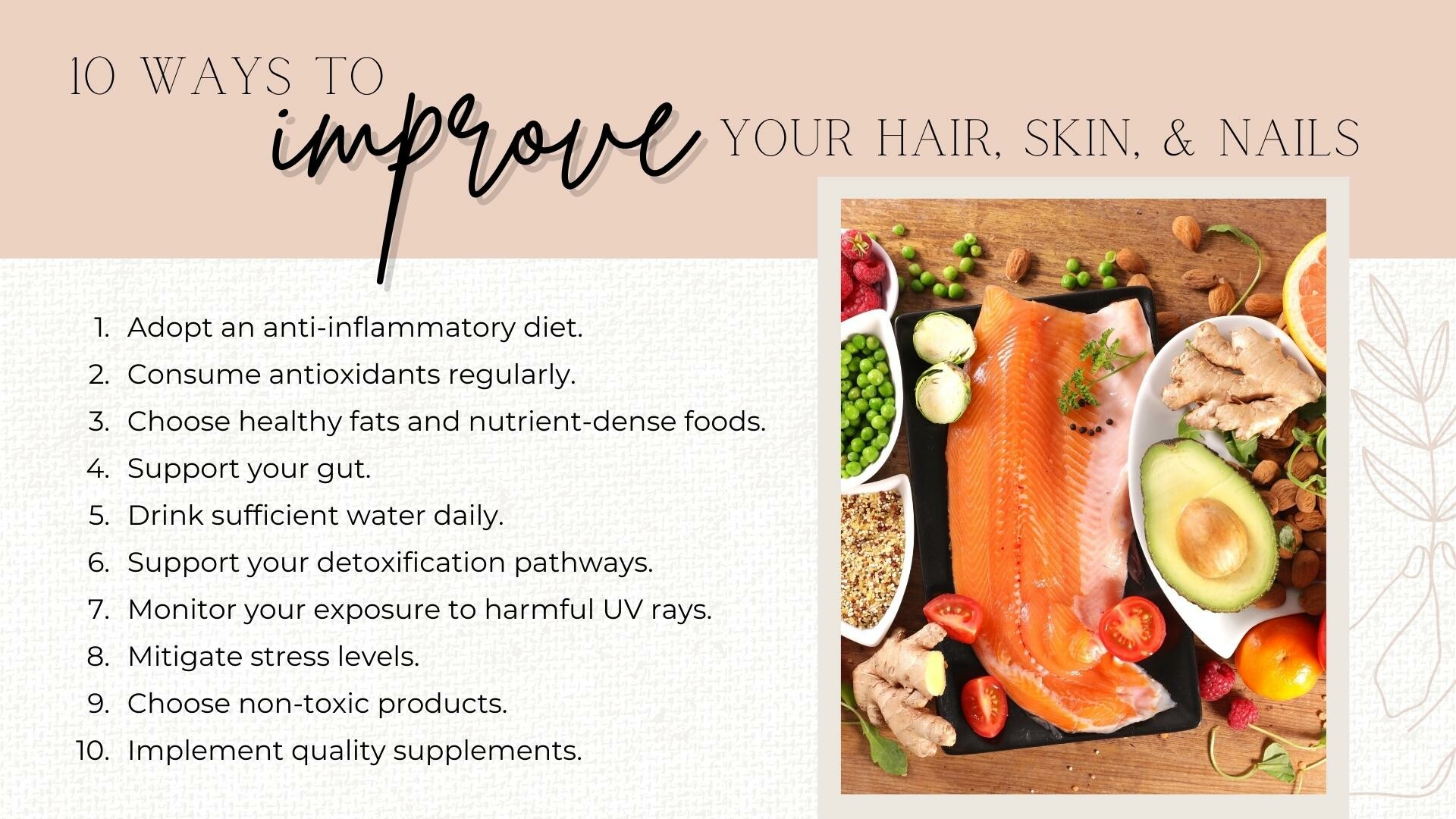
- Information obtained here is meant for educational and informational purposes
- ONLY, and to motivate and empower you to make your own wellness journey based on your own research and partnership with your healthcare provider.
- The statements have not been evaluated by the FDA. These products are not intended to diagnose, treat, cure, or prevent any disease.
Love what you read here? Subscribe for updates.
Follow me on social:
Facebook
Instagram
